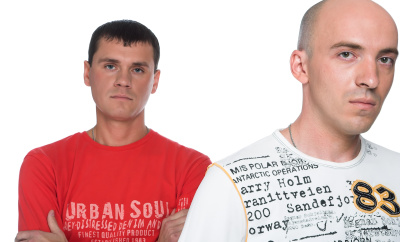
Why Some Gay Men Over 40 Cheat: A Closer Look at What’s Really Going On
Let’s be real: infidelity is a complicated topic, and when it comes to gay men over 40, the conversation gets even more layered. Aging, dating culture, long-term relationships, and shifting identity all play a role. While cheating is never the answer to relationship issues, understanding why it happens can offer some insight—and maybe even spark healthier conversations.
The Need for Validation
One big reason some older gay men cheat? Validation. In a culture that often prioritizes youth and physical appearance, hitting 40 (and beyond) can feel like stepping into invisibility. Some men seek attention outside their relationship simply to feel wanted again.
“As gay men age, they often report a loss of visibility within their own community,” says Dr. Steven Goldstein, a licensed therapist specializing in LGBTQ+ issues. “Cheating isn’t about sex alone—it’s often about feeling desired, especially when self-esteem begins to take a hit.”
This need to feel seen isn’t unique to gay men, but the pressure can be especially intense in a community where looks are heavily emphasized.
Technology Changes the Game
Remember when finding someone to hook up with meant going to a bar or cruising a park? Yeah, those days are long gone. Now, with apps like Grindr, Scruff, and Tinder, discreet opportunities are just a swipe away.
“Digital access has changed everything,” explains sexologist Dr. Rachel Martin. “For men over 40 who may have spent years in monogamous or pre-digital relationships, the sudden availability of anonymous or no-strings-attached sex can be intoxicating.”
Temptation is constant, and if a relationship doesn’t have clear boundaries or ongoing communication, cheating can become an easy (but damaging) escape route.
Long-Term Relationships Need Work
Let’s talk about long-term love. A lot of gay men over 40 have been in relationships for years—and that’s beautiful, but it’s also hard work. Over time, routines set in, sex lives shift, and communication can suffer.
“We often don’t grow up with models for healthy, long-term same-sex relationships,” says counselor Jamal Rivera, who works with gay couples over 35. “That means we’re figuring it out as we go—and sometimes that means making painful mistakes.”
When emotional or sexual needs aren’t met, and there’s no space for open dialogue, some partners stray—not because they don’t love their partner, but because they feel stuck.
Not an Excuse—Just a Reality Check
None of this is meant to excuse cheating. At the end of the day, infidelity is a choice. But it’s also usually a symptom of something deeper: loneliness, insecurity, boredom, or emotional disconnection.
“Cheating is rarely just about the other person—it’s usually about unmet needs within ourselves,” Dr. Martin adds. “It’s a sign something internal, or relational, needs attention.”
Understanding the “why” doesn’t make it okay—but it can open the door to healing, either within the relationship or after it ends.
So What’s the Answer?
It comes down to communication, clarity, and intention. Whether you’re in a monogamous or open relationship, talking about expectations, needs, and temptations is crucial.
“Relationships evolve, and so should the conversations within them,” says Rivera. “Check-ins, therapy, and even discussing your fantasies can bring people closer rather than pull them apart.”
Aging in the gay community doesn’t have to mean fading out or acting out. With the right tools, it can actually be a time of deeper connection, confidence, and love.



